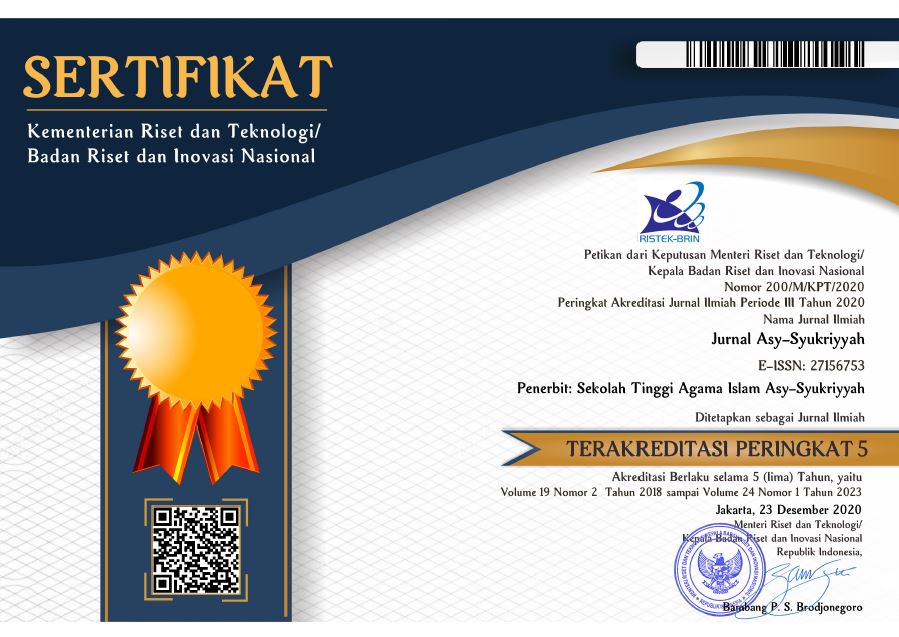Analisa Pola Distribusi Zakat Pada Masa Daulah Umayyah dan Abbasiyah
DOI:
https://doi.org/10.36769/asy.v18i1.75Abstract
Zakat is one of the pillars in Islamic economics that can be an indicator of the economy on a wider scale in a state setting. Zakat management in Islamic countries, especially in Indonesia, has not shown a positive implication.This journal examines the history of zakat management from several phases in the history of Islam, in order to see the proper management based on Islamic history, and the phase in which zakat management begins regardless of historical control.
the management of zakat in Islam initially proceeded with the management of centralization in which the state became the official manager and authority in the collection and distribution of zakat. History recorded that Umar bin Abdul Aziz became the pioneer of productive zakat management. Centralization pattern shifted when some Umayyah caliphs were more focused in millitary aspects.it raises the distrust of the people who build self-management rather than submit to the state,















